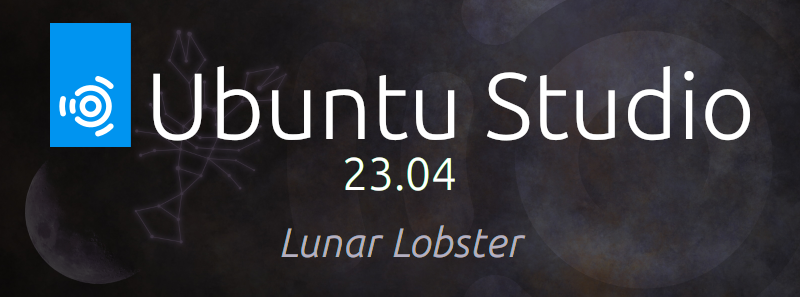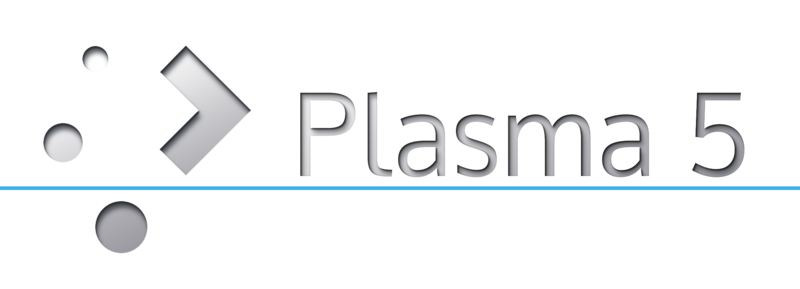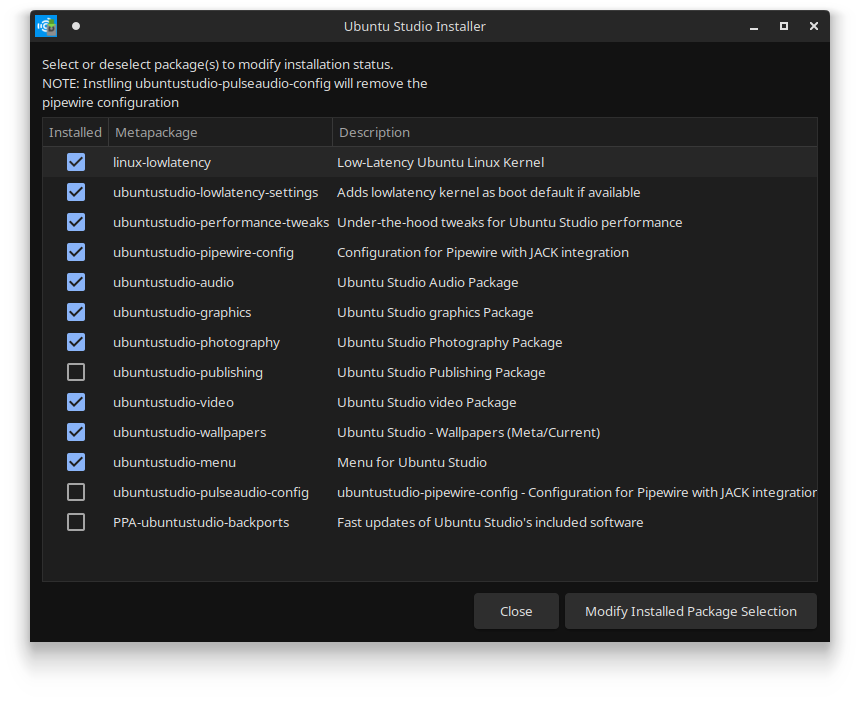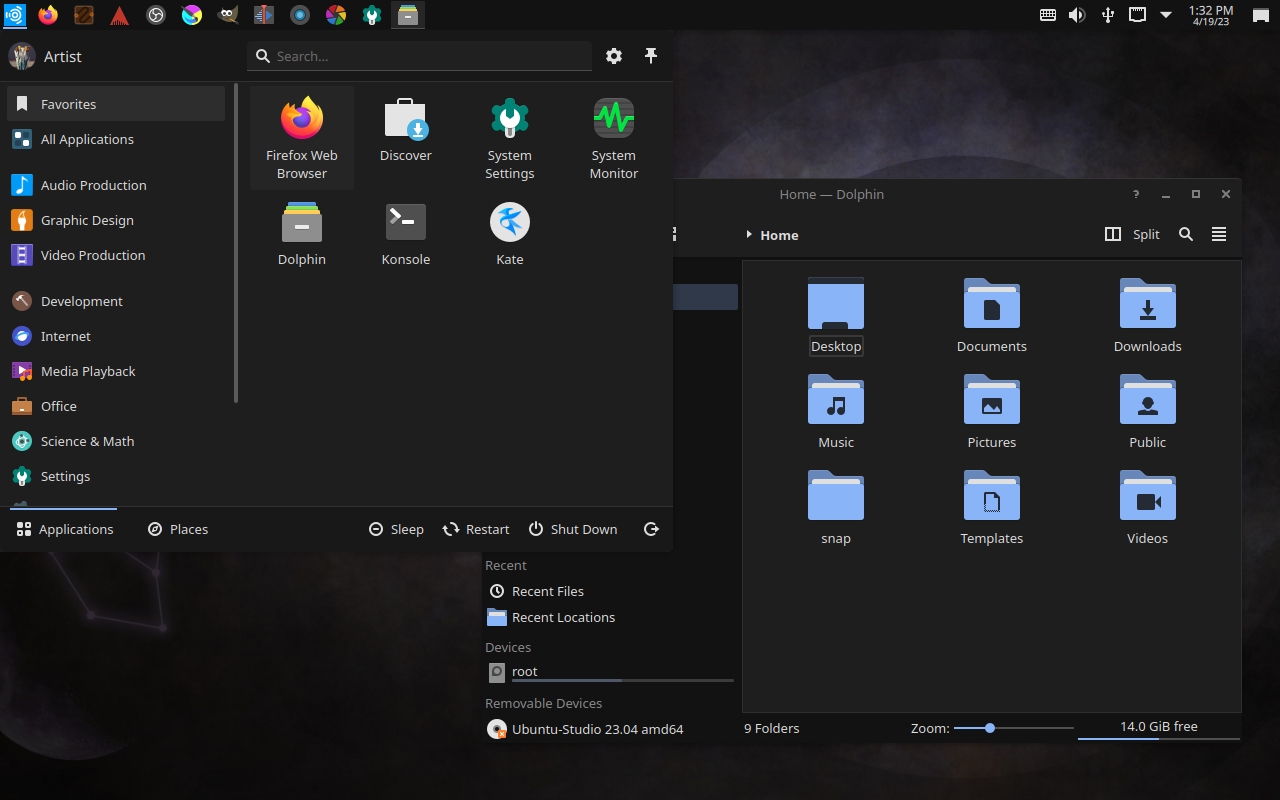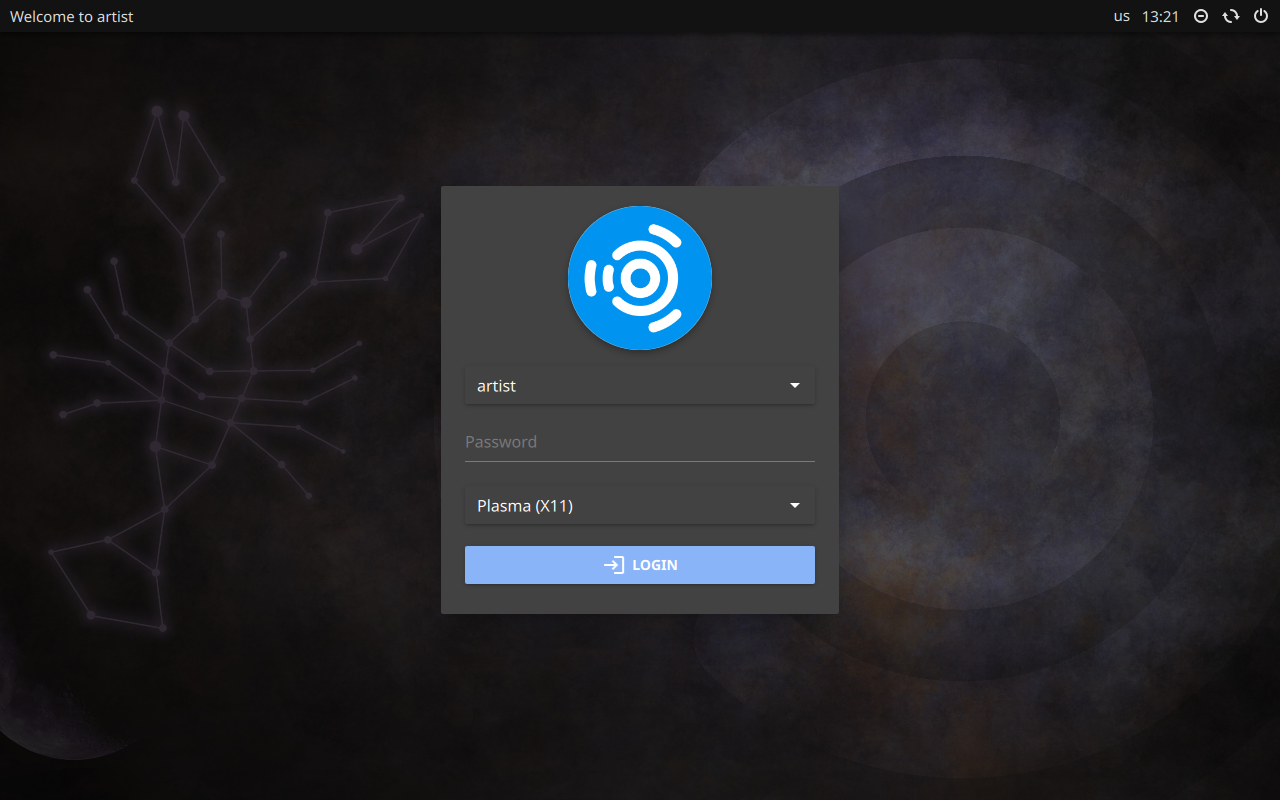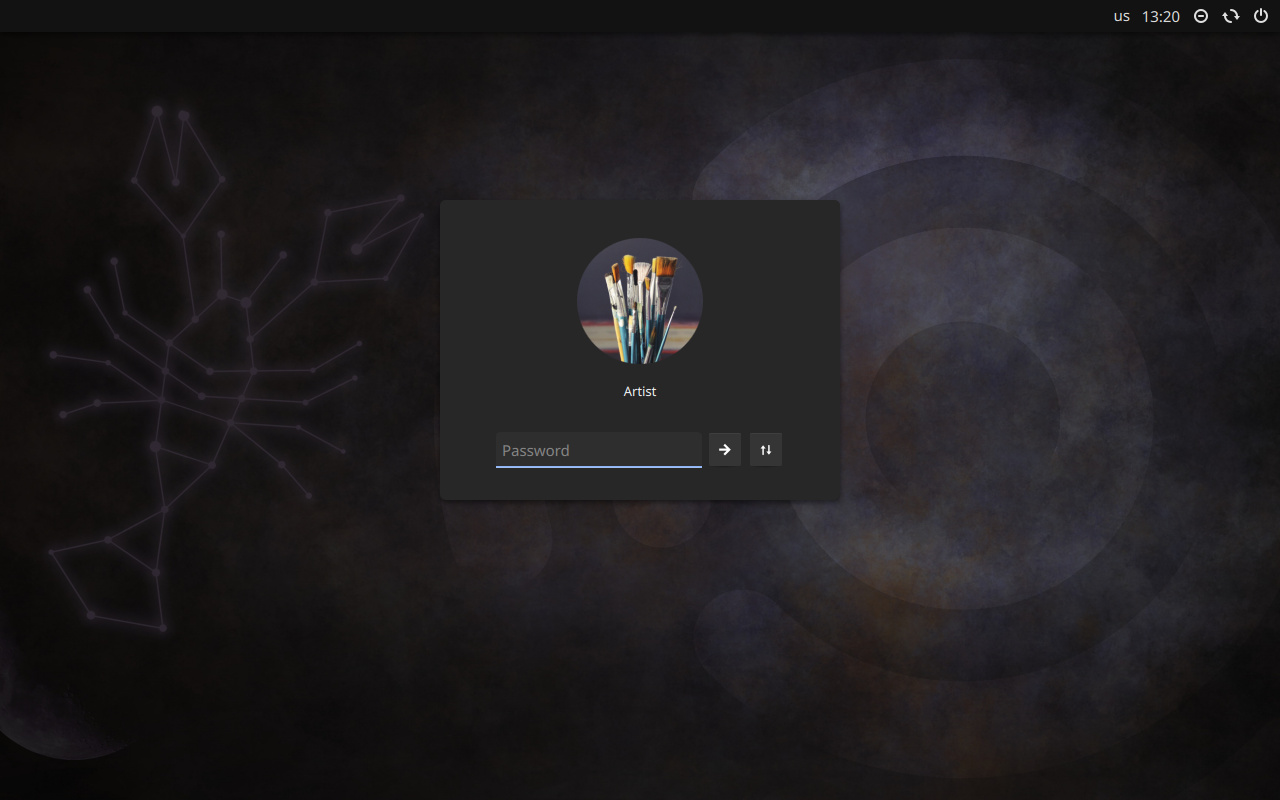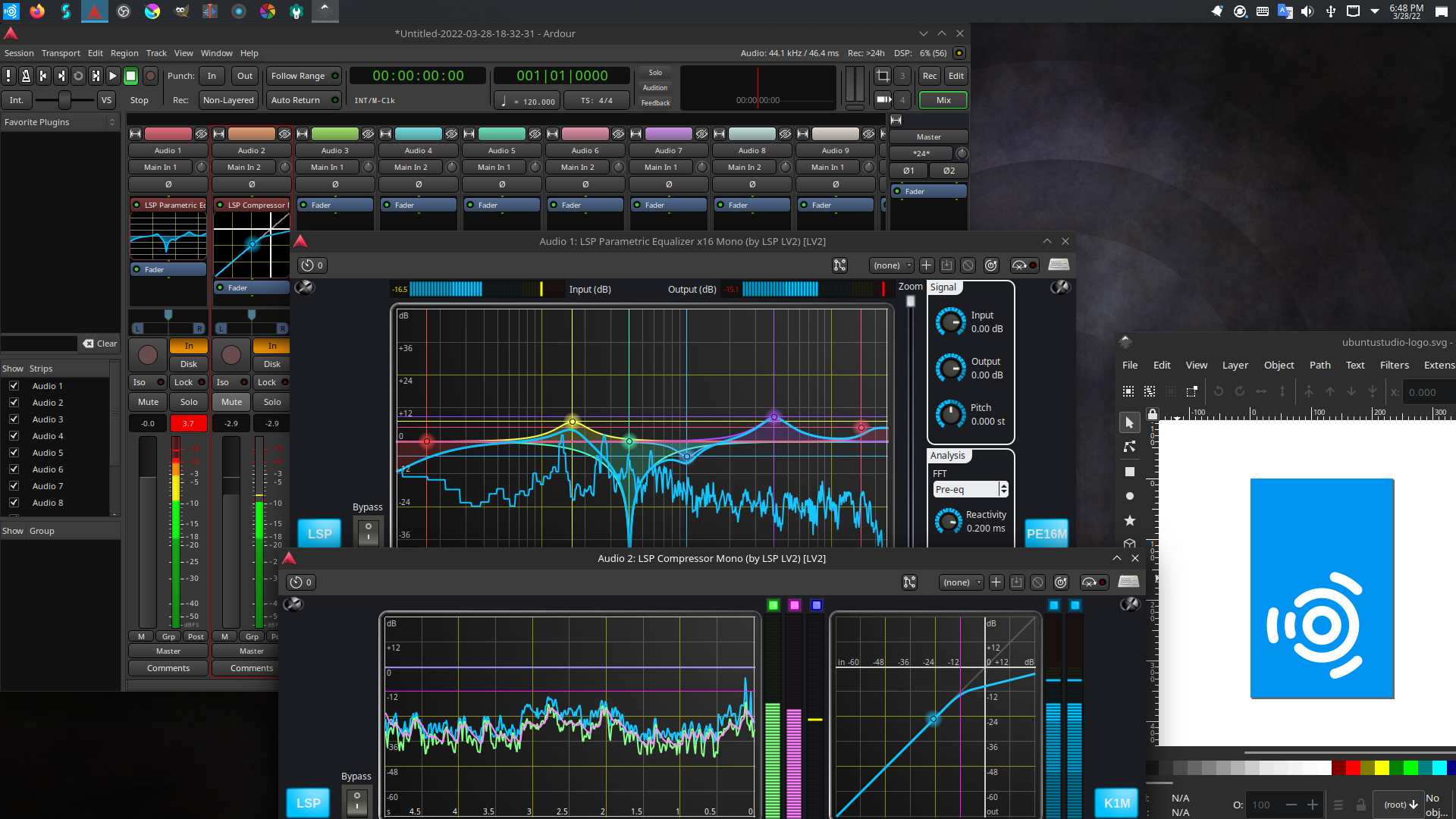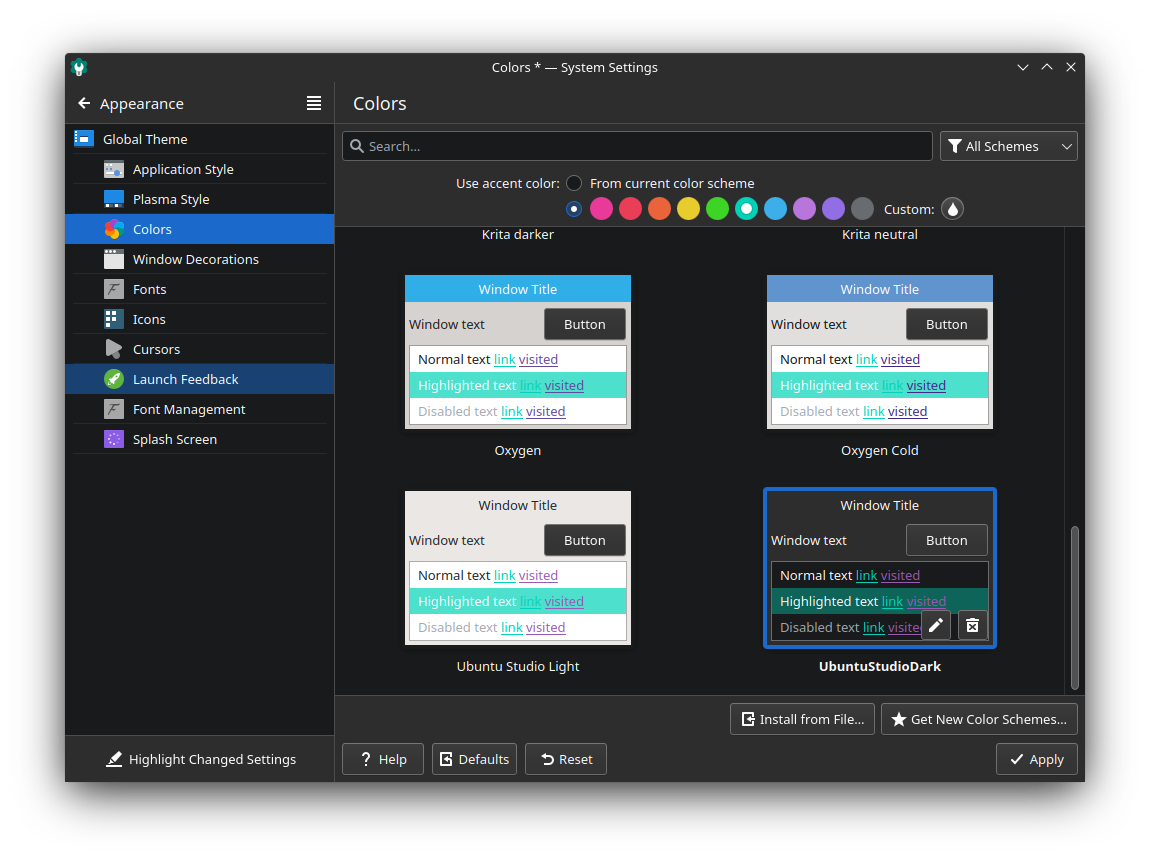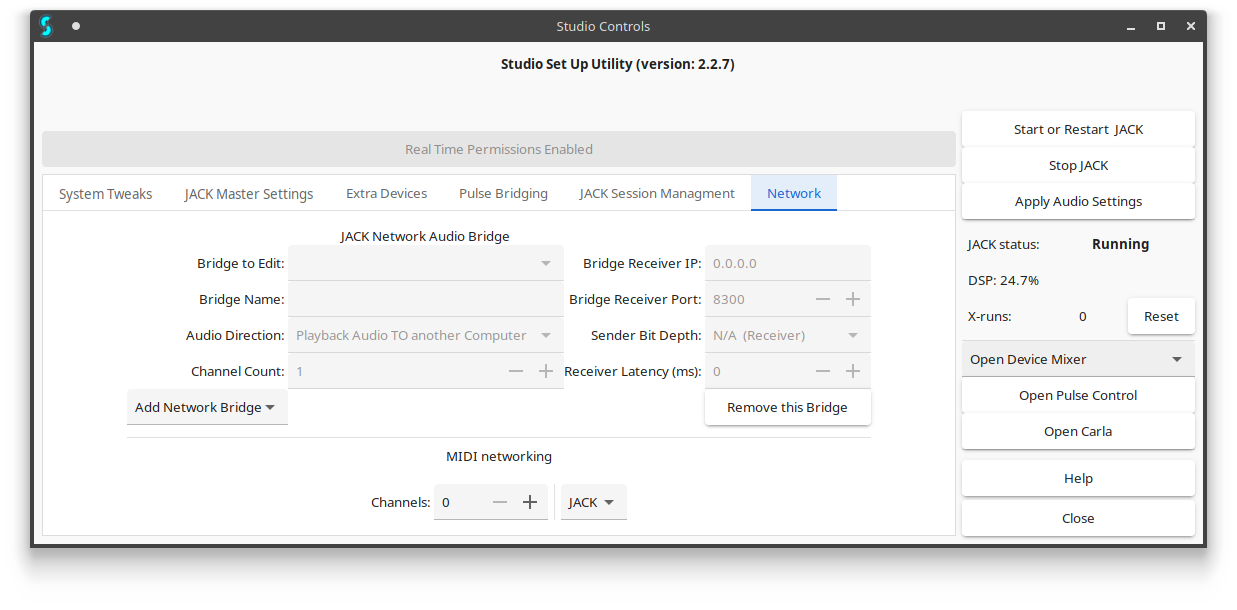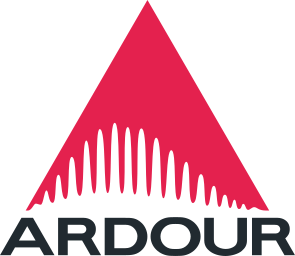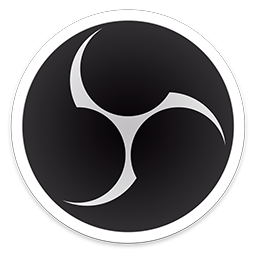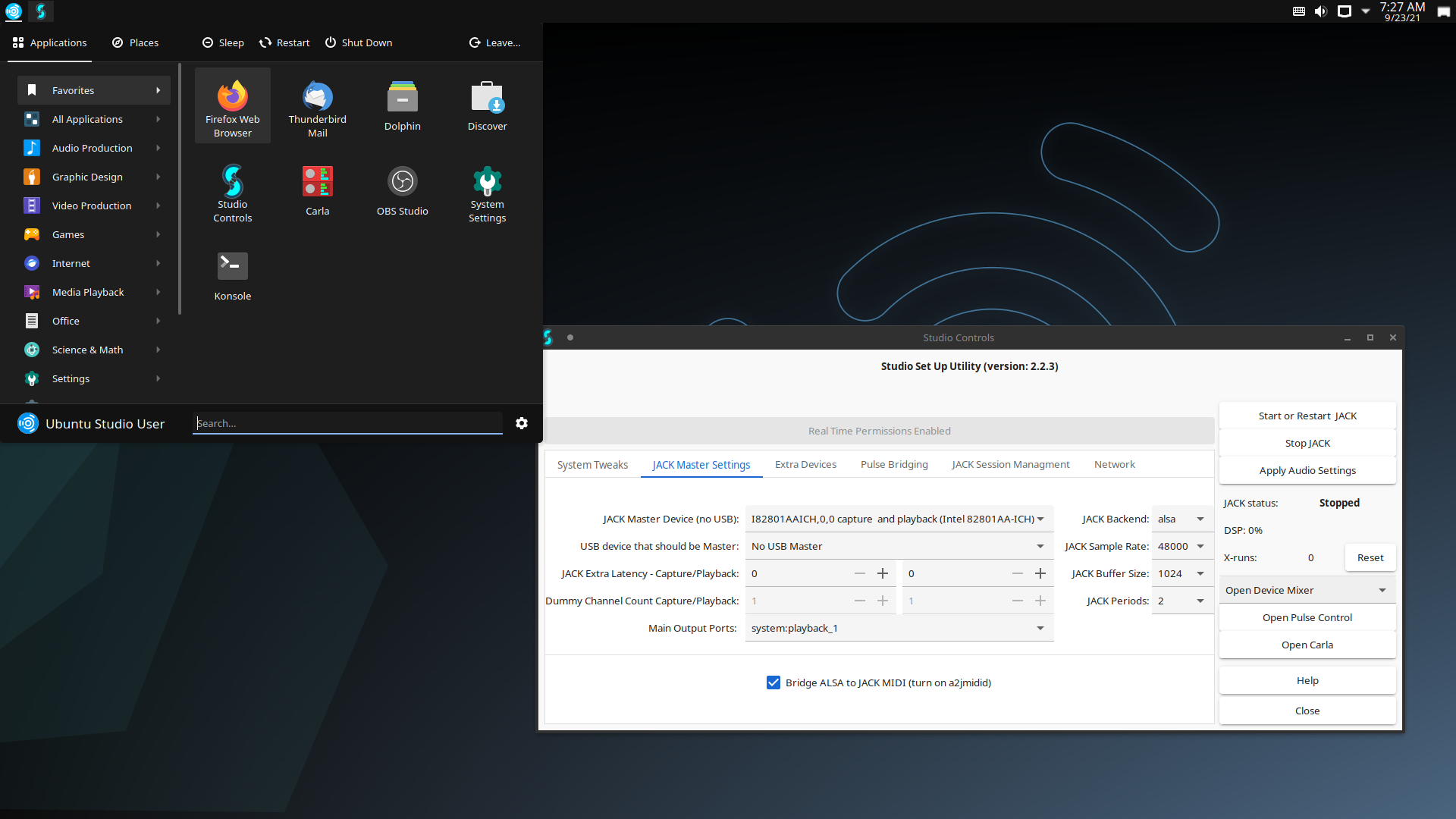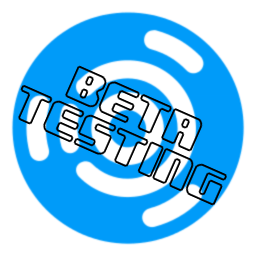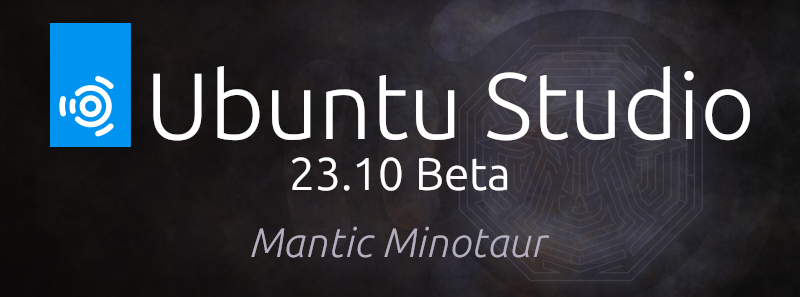
The Ubuntu Studio team is pleased to announce the beta release of Ubuntu Studio 23.10, codenamed “Mantic Minotaur”.
While this beta is reasonably free of any showstopper installer bugs, you may find some bugs within. This image is, however, mostly representative of what you will find when Ubuntu Studio 23.10 is released on October 12, 2023.
Special Notes
The Ubuntu Studio 23.10 disk image (ISO) exceeds 4 GB and cannot be downloaded to some file systems such as FAT32, and may not be readable when burned to a DVD. For this reason, we recommend downloading to a compatible file system. When creating a boot medium, we recommend creating a bootable USB stick with the ISO image, or burning to a Dual-Layer DVD.
Images can be obtained from this link: https://cdimage.ubuntu.com/ubuntustudio/releases/23.10/beta/
Full updated information, including Upgrade Instructions, are available in the Release Notes.
New Features This Release
- PipeWire‘s JACK support is now drastically improved and includes a real-time bridge between the JACK and ALSA components of PipeWire, and continues to improve with every release. Version 0.3.79
- Ubuntu Studio Installer now includes an Ubuntu Studio Audio Configuration utility for fine-tuning the PipeWire setup or changing the configuration altogether. Version 1.9
- QPrompt is now, while not included in the Ubuntu Studio .iso image, available in the repositories. QPrompt is free teleprompter software for video recording and television studios. Version 1.1.6
Major Package Upgrades
- Ardour version 7.5.0
- Qtractor version 0.9.35
- OBS Studio version 29.1.3
- Audacity version 3.3.3
- digiKam version 8.1.0
- Kdenlive version 23.08.1
- Krita version 5.1.5
There are many other improvements, too numerous to list here. We encourage you to look around the freely-downloadable ISO image.
Known Issues
- Ubuntu Studio’s classic PulseAudio-JACK configuration cannot be used on Ubuntu Desktop (GNOME) due to a known issue with the ubuntu-desktop metapackage. (LP: #2033440)
Official Ubuntu Studio release notes can be found at https://ubuntustudio.org/ubuntu-studio-23-10-release-notes/
Further known issues, mostly pertaining to the desktop environment, can be found at https://wiki.ubuntu.com/ManticMinotaur/ReleaseNotes/Kubuntu
Additionally, the main Ubuntu release notes contain more generic issues: https://discourse.ubuntu.com/t/mantic-minotaur-release-notes/35534
How You Can Help
Please test using the test cases on https://iso.qa.ubuntu.com. All you need is a Launchpad account to get started.
Additionally, we need financial contributions. Our project lead, Erich Eickmeyer, is working long hours on this project and trying to generate a part-time income. See this post as to the reasons why and go here to see how you can contribute financially (options are also in the sidebar).
Frequently Asked Questions
Q: Does Ubuntu Studio contain snaps?
A: Yes. Mozilla’s distribution agreement with Canonical changed, and Ubuntu was forced to no longer distribute Firefox in a native .deb package. We have found that, after numerous improvements, Firefox now performs just as well as the native .deb package did.
Additionally, Freeshow is an Electron-based application. Electron-based applications cannot be packaged in the Ubuntu repositories in that they cannot be packaged in a traditional Debian source package. While such apps do have a build system to create a .deb binary package, it circumvents the source package build system in Launchpad, which is required when packaging for Ubuntu. However, Electron apps also have a facility for creating snaps, which can be uploaded and included. Therefore, for Freeshow to be included in Ubuntu Studio, it had to be packaged as a snap.
Q: If I install this Beta release, will I have to reinstall when the final release comes out?
A: No. If you keep it updated, your installation will automatically become the final release. However, if Audacity returns to the Ubuntu repositories before final release, then you might end-up with a double-installation of Audacity. Removal instructions of one or the other will be made available in a future post.
Q: Will you make an ISO with {my favorite desktop environment}?
A: To do so would require creating an entirely new flavor of Ubuntu, which would require going through the Official Ubuntu Flavor application process. Since we’re completely volunteer-run, we don’t have the time or resources to do this. Instead, we recommend you download the official flavor for the desktop environment of your choice and use Ubuntu Studio Installer to get Ubuntu Studio.
Q: What if I don’t want all these packages installed on my machine?
A: Simply use the Ubuntu Studio Installer to remove the features of Ubuntu Studio you don’t want or need!
